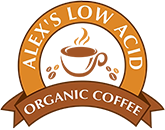For those who live for that first sip of coffee in the morning, the day doesn’t truly begin until caffeine works its magic. However, for individuals managing GERD (Gastroesophageal Reflux Disease), that simple pleasure comes with its own set of challenges. Balancing a diet of esophagus-friendly foods and drinks can be tricky, especially when trying to avoid flare-ups caused by some surprising sources of caffeine.
While the usual GERD triggers like citrus fruits, spicy foods, and caffeinated beverages are well-known, caffeine can also sneak into less obvious places. Below is a closer look at some surprising caffeine sources that GERD sufferers might want to keep an eye on.
The Usual (But Surprising) Suspects
Chocolate: The Bittersweet Truth
Chocolate, especially dark chocolate, is a bittersweet indulgence for many, but it contains caffeine, which can trigger GERD symptoms. Dark chocolate, in particular, packs more of both flavor and caffeine. It’s worth considering this hidden caffeine source before reaching for a rich chocolate treat, especially for those sensitive to GERD.
Decaf Coffee: The Sneaky Pretender
While decaffeinated coffee might seem like a safe alternative for those trying to avoid GERD flare-ups, it doesn’t mean caffeine-free. Decaf still contains small amounts of caffeine, and for individuals with sensitive systems, this can be enough to trigger discomfort. On the bright side, products like Alex’s Low Acid Organic Coffee – Decaf Fresh Ground offer a gentler, low-acid and low-caffeine option for those craving coffee without the burn.
Non-Cola Sodas: The Unexpected Perpetrators
Cola beverages are notorious for their caffeine content, but other sodas can be just as surprising. Clear and citrus sodas, which may seem caffeine-free, often contain caffeine as well. It’s always a good idea to check the label before assuming a drink is GERD-friendly.
Energy Water: Hydration with a Buzz
Water is generally considered a safe zone for hydration, but the growing trend of "energy waters" has changed the landscape. These beverages, infused with vitamins, minerals, and caffeine, may seem like a healthy choice but could cause problems for GERD sufferers due to the caffeine content.
Pain Relievers: Relief with a Catch
Pain relievers are a go-to solution for headaches, but many over-the-counter medications contain caffeine to enhance their effectiveness. While this is helpful for knocking out pain, it may also contribute to GERD flare-ups, making it important to read labels carefully when choosing pain relief options.
The Bottom Line
Navigating GERD is like solving a puzzle, with caffeine being a tricky piece to fit. It's not just about avoiding obvious sources like coffee and tea, but also recognizing the hidden caffeine in products that may catch people off guard. Staying informed and reading labels can go a long way in preventing discomfort and keeping GERD under control.
For those living with GERD, maintaining a balance between enjoying life’s indulgences and managing their symptoms is key. With a little extra vigilance, it’s possible to enjoy favorite foods and beverages while keeping GERD at bay.
Here’s to happier tummies and smoother days ahead!

